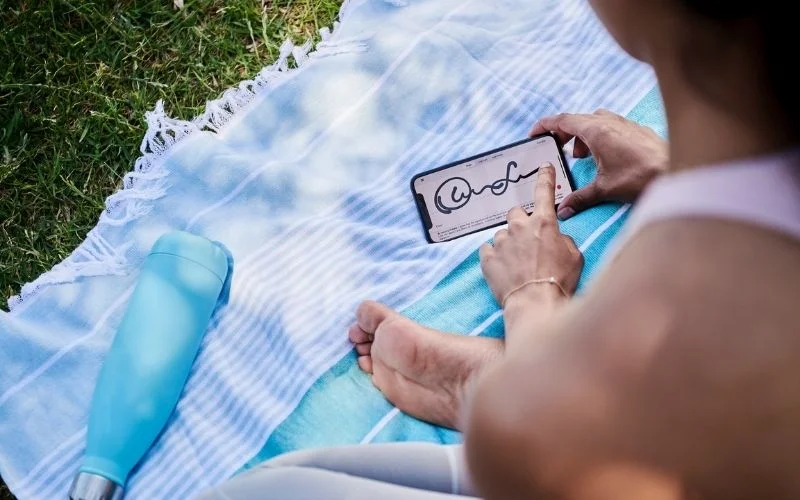Tax season can be a complicated time for independent creators, who must sift through various potential deductions. Unlike traditional employees with W-2s, creators must understand the expenses to transform. That’s to say, into beneficial deductions to reduce their tax liability. Let’s take a look at the essential tax deductions for independent creators.
Home Office Tax Deductions for independent creators
- Qualifying a space in your home
- How to calculate expenses
- Strategies for maximizing tax deductions for independent creators
A home office deduction can be significant for independent creators. The space must be used exclusively and regularly for your business. Also, it should be the main place where you conduct your work. It doesn’t have to be an entire room—a consistent area will suffice as long as it meets the requirements.
There are two ways to calculate the deduction:
- The simplified option, which uses a set rate per square foot.
- The regular method, which involves calculating the actual expenses of your home. For example, mortgage interest or utilities, proportionate to the size of your office area.
To back up your tax deductions for independent creators, keep detailed records and even photographs of your workspace. The IRS website offers comprehensive guidelines to help you determine if your home office qualifies.
Tax Deductions for Independent Creators for Equipment Purchases

- What qualifies as equipment for creators
- Insights into Section 179 and bonus depreciation
- Importance of record-keeping for purchases
Creators and influencers depend on various tools, including computers, cameras, and software. Equipment necessary for your creative work may be deductible. The IRS has provisions, such as Section 179 and bonus depreciation. They allow for immediate expensing of such items, which can be new or used.
For instance, if you buy a $3,000 computer for video editing, you might be able to deduct the entire cost in the year of purchase under Section 179. Maintaining detailed records of these purchases, including the business use and receipts, is essential for substantiating these deductions during tax filings.
Software Subscriptions
- Defining deductible software costs
- Distinguishing between types of expenses
- Keeping track of software expenses
Software subscriptions, now a common expense, can be deducted if they’re necessary for your business. These may include creative tools, project management platforms, or accounting software. The manner in which you deduct these costs depends on whether the software is considered a current expense or a capital expense.
A graphic designer who pays monthly for photo editing software can deduct those payments as current business expenses. On the other hand, a multi-year software license may need to be amortized over the lifetime of the software.
Bank statements or invoices are important for documentation. It helps ensuring you have proof of these expenses if ever questioned by the IRS.
Educational Expenses
Investing in your skills is beneficial for your career and can also reduce your tax liability. As a creator, you can deduct educational expenses that maintain or improve your skills. In addition, or that a law or regulation requires for keeping your professional status. These expenses include tuition, books, supplies, lab fees, and transportation to classes.
If you’re a photographer and you enroll in a course to master a new post-processing technique, this expense can generally be deducted. However, the education must relate to your current business; courses for new career paths are not deductible.
Keeping detailed records is essential for tax deductions for independent creators. Preserve receipts and records that demonstrate the direct relationship between the educational expenses and your creative business. It’s important to be strategic – view your educational investments as a way to grow professionally and a method to reduce your tax burden.
Travel Expenses
Travel can introduce new perspectives in your work, and the IRS allows deductions for many travel-related expenses. This includes airfare, hotels, car rentals, and even a portion of your meals. The travel must be primarily for business – attending a conference, meeting clients, or scouting locations for a shoot, for example.
If you’re a freelance writer going to a writer’s retreat to network and attend workshops, you can deduct your travel expenses. However, it’s critical to separate business from leisure; if you extend your trip for a vacation, those additional days are not deductible.
Keep a detailed log of your travel, noting the business reason for each trip. Store all relevant receipts and documentation to establish a clear paper trail for these expenses. It’s not solely about claiming the deduction but also ensuring you’re prepared if the IRS requests proof.
Conclusion about Tax Deductions for independent creators
As tax season approaches, it’s crucial for independent creators like you to understand and utilize these key deductions. From the space where you brainstorm to the equipment and software that bring your ideas to life. In the same way, from the classes that sharpen your skills to the trips that inspire and connect you. As a result, these are more than just business expenses. They’re investments in your creative future that can also help lower your tax bill.
Remember, while these tax deductions for independent creators can provide significant savings, they also demand diligent record-keeping and a firm grasp of tax laws. If you’re unsure about how to apply these deductions to your situation, consider consulting a tax professional. With proper planning and smart tax strategies, you can continue to focus on your passion for creating. Besides, innovating while confidently managing tax season.






